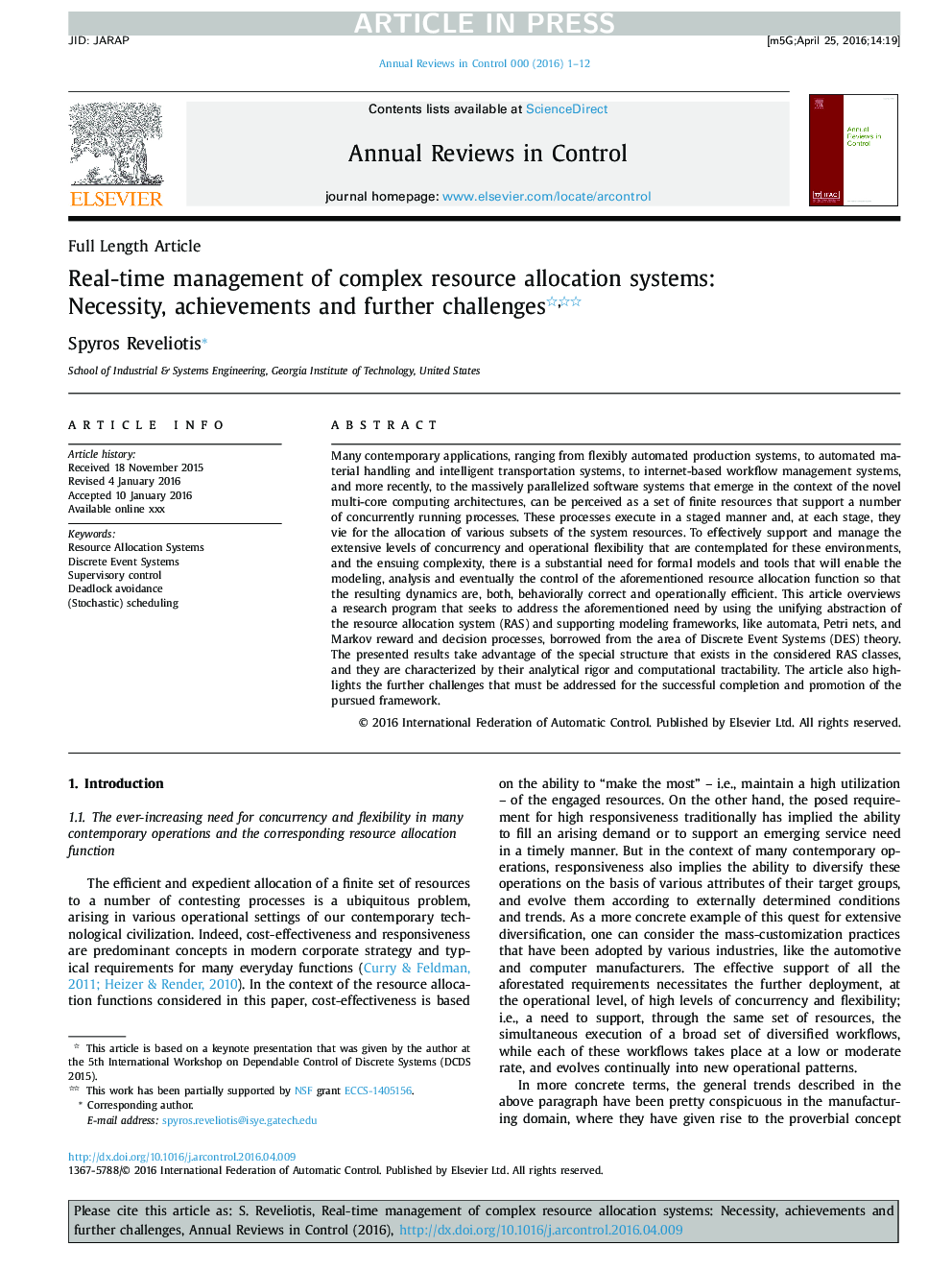| Article ID | Journal | Published Year | Pages | File Type |
|---|---|---|---|---|
| 7107907 | Annual Reviews in Control | 2016 | 12 Pages |
Abstract
Many contemporary applications, ranging from flexibly automated production systems, to automated material handling and intelligent transportation systems, to internet-based workflow management systems, and more recently, to the massively parallelized software systems that emerge in the context of the novel multi-core computing architectures, can be perceived as a set of finite resources that support a number of concurrently running processes. These processes execute in a staged manner and, at each stage, they vie for the allocation of various subsets of the system resources. To effectively support and manage the extensive levels of concurrency and operational flexibility that are contemplated for these environments, and the ensuing complexity, there is a substantial need for formal models and tools that will enable the modeling, analysis and eventually the control of the aforementioned resource allocation function so that the resulting dynamics are, both, behaviorally correct and operationally efficient. This article overviews a research program that seeks to address the aforementioned need by using the unifying abstraction of the resource allocation system (RAS) and supporting modeling frameworks, like automata, Petri nets, and Markov reward and decision processes, borrowed from the area of Discrete Event Systems (DES) theory. The presented results take advantage of the special structure that exists in the considered RAS classes, and they are characterized by their analytical rigor and computational tractability. The article also highlights the further challenges that must be addressed for the successful completion and promotion of the pursued framework.
Related Topics
Physical Sciences and Engineering
Engineering
Control and Systems Engineering
Authors
Spyros Reveliotis,
